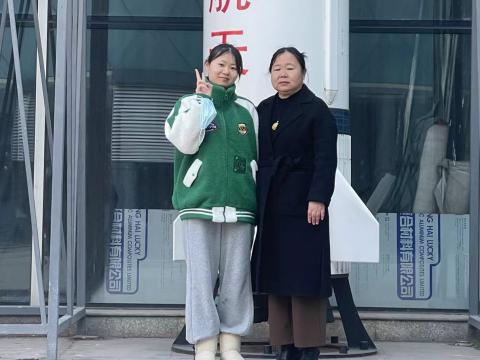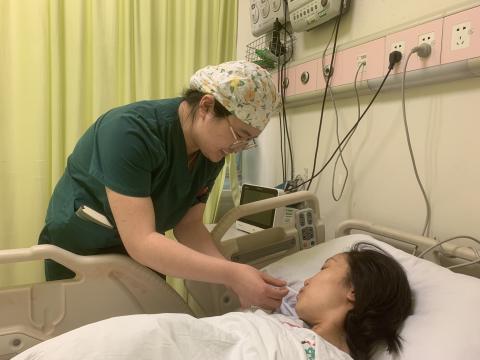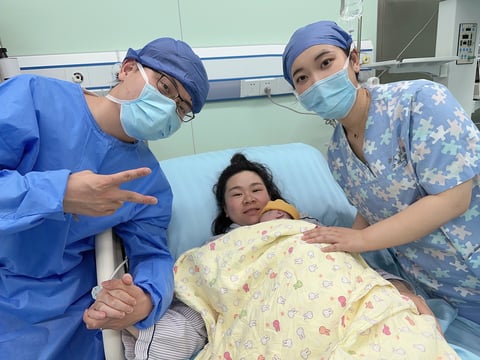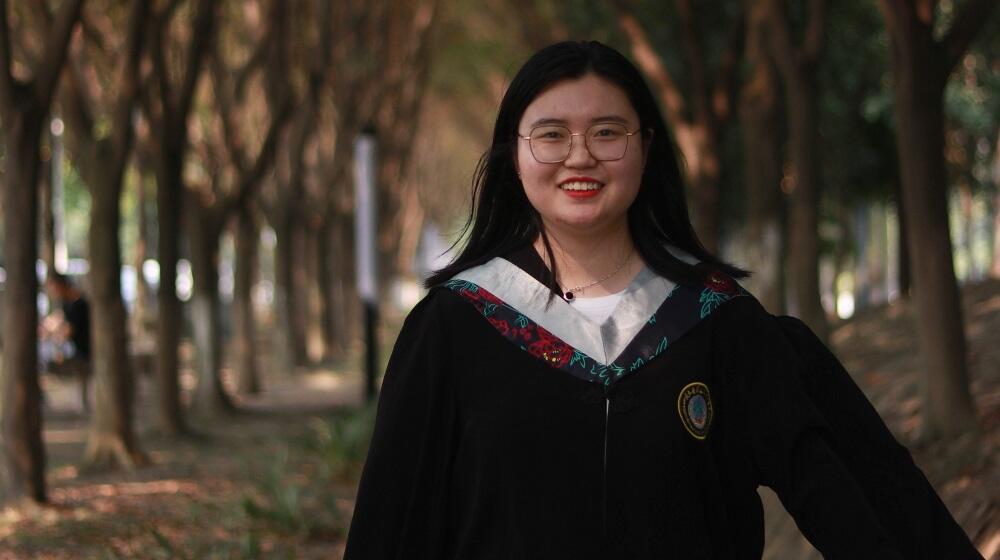Advancing midwifery as a profession has always been a key focus of UNFPA’s work in China and for more than a decade, UNFPA has worked closely with the National Health Commission (NHC) and Chinese Maternal and Children’s Health Association (CMCHA) to promote midwifery higher education in order to strengthen the midwifery workforce in China.
Investing in midwives leads to a world where every pregnancy is wanted and every childbirth is safe. On 5 May, UNFPA is celebrating midwives and their work which saves and transforms lives. To mark the International Day of the Midwife, UNFPA China and our partner, CMCHA caught up with some of the very first students of the midwifery undergraduate programme in China who graduated in 2021.
Tang Huijun: An interest in becoming a midwife

After seeing healthworkers on TV as a child, Tang Huijun thought they were 'really cool'. From a very early age she dreamed of becoming a member of the medical profession and when she graduated from school, she chose to study midwifery, as she wanted to help mothers and their babies be safe and healthy during the labour process.
Emphasising the importance of a skilled birth attendant to help women deliver safely, Huijun recalled the traumatic experience of her mother, when her younger brother was born in hospital with brain damage. It was nighttime when her mother went into labour ten weeks early but she received little support or medical care from the midwife or doctor due to their limited knowledge and skills. Whilst she can't state with certainty that the long labour caused her brother's disability, Huijun feels that if there had been a well-trained professional there to help her mother, maybe the outcome could have been a different one.
Huijun completed a four-year midwifery undergraduate course in Hebei Medical University and is now a midwife with the Shijiazhuang Prefecture Obstetrics and Gynecology Hospital. She is proud of her work as she is able to help assess and respond to a woman's specific situation and ensure a safe birth. She shared an experience where she helped a very petite woman give birth safely to a large baby.
“Because of a midwife's help, a family of two becomes a family of three and everyone can experience the joy of a new life beginning safely and healthily,” Huijun reflected.
Zhu Mingxin: The trust from the expectant mother motivates me to carry on my work

in Chengdu, Sichuan Province. Credit: Meng Yangxue
For a long time in China, midwifery was regarded as a sub-specialisation of nursing rather than a medical specialism in its own right. This is how midwife Zhu Mingxin studied midwifery in university.
Inspired by her early experience of being well cared for by a nurse after a traffic accident, Zhu Mingxin chose to study nursing with the West China School of Nursing at Sichuan University in 2017. In her third year of study, she chose to specialise in midwifery because she was drawn to being part of a medical team bringing new life into the world.
Mingxin spent ten months on probation in the Second Hospital of the West China School of Nursing at Sichuan University in her fourth year, which reaffirmed her commitment to midwifery.
“I felt trusted. She really needed me,” explained Mingxin.
She shared her experience of comforting a young mother in the initial weeks of her probation. The mother was in her mid-twenties, having her first baby, and held Mingxin's hands tightly as she asked anxiously "are you going to stay with me?" Mingxin stayed with her throughout her labour and helped the young woman to stay calm until she delivered her baby.
Being able to support this young woman both as a medical professional and like a friend, motivated Mingxin to continue working as a midwife and to help more women through their delivery.
He Lisha: Inclusive, client-centred care is key

He Lisha studied midwifery at the Zhejiang Chinese Medical University. She has been a midwife at the Women’s Hospital Affiliated to the School of Medicine of Zhejiang University since 2021.
Speaking of what makes a qualified midwife, Lisha stresses that practical experience is as important as theoretical study. Compared with her peers studying general nursing, Lisha said midwifery requires more specific knowledge and skills. For example, a midwife needs to understand the way a pregnant woman's pre-existing illnesses and conditions can affect her pregnancy, so they can be managed from an early stage.
For pregnant women with disabilities, an inclusive approach to care and support is critical to ensuring a woman can give birth with dignity and respect. Most recently, Lisha attended a 32-year-old woman with hearing difficulties who was accompanied by her husband during her labour. Realising the woman’s need to keep her husband close so she could communicate with the medical staff, as well as noting the husband’s interest in learning and supporting his wife, Lisha engaged the man closely in the birth and provided simple instructions for him to follow, including monitoring the equipment and guiding his wife in when to breathe deeply and when to relax during the early stages of labour.
Through this joint effort, the husband played an important role in his wife's labour by connecting Lisha with his wife and making their communication easier.
Lisha feels strongly that "every mother deserves a comfortable delivery experience."


